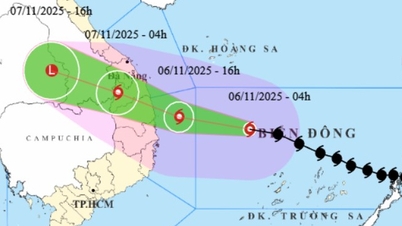
Safe-haven currencies such as the Japanese yen and the US dollar continued to attract demand as a sharp sell-off led by tech stocks on Wall Street spread to Asian markets.
Among risk-sensitive currencies, the Australian dollar remained weak after falling 0.8% against the USD in the previous session, while the New Zealand dollar was under further pressure, hovering around its lowest in nearly seven months after the country's unemployment rate rose to its highest since 2016. Against the Australian dollar, the New Zealand currency also fell to a 12-year low.
The Australian dollar is currently trading at $0.6466, down 0.37%.
The New Zealand dollar fell 0.32% to $0.5637.
In addition to risk aversion, the Australian dollar remained under pressure after the Reserve Bank of Australia (RBA) kept interest rates unchanged on Tuesday, signaling a pause in its tightening cycle.
“The RBA’s post-meeting statement was not as hawkish as expected, especially given the unexpectedly strong rise in inflation,” said Joseph Capurso, a strategist at Commonwealth Bank of Australia.
The pound slid to a seven-month low after UK Chancellor Rachel Reeves hinted at the possibility of widespread tax rises in her budget due later this month.
“Risk-off sentiment has spread across the market over the past 24 hours,” leading to “the US dollar strengthening against most currencies except the Japanese yen, while risk-sensitive and growth currencies have suffered the most,” said Ray Attrill, head of foreign exchange research at National Australia Bank (NAB).
“This development coincides with the pound's clear reaction to the fiscal tightening message from Minister Reeves,” the expert commented.
Asian stocks opened in the red, with Japan's Nikkei 225 down 2.4%, while South Korea's KOSPI lost 4.8%.
The US dollar index - a gauge of the greenback's strength against a basket of euros, pounds, yen and three other currencies - hovered around 100.109 after touching 100.25, its highest since August 1.
The USD was supported by the division within the US Federal Reserve (Fed) on the path of monetary policy, making the possibility of an interest rate cut at the December meeting less likely. The market was also affected by the risk of a prolonged US government shutdown, disrupting economic reports, causing investors to focus on the ADP private sector employment report released later in the day.
The yen rose 0.42% to 153.03 USD, following a 0.7% gain in the previous session.
The euro rose 0.02% to $1.1485 after gaining 0.3% in the previous session and hitting a seven-month peak.
The pound fell 0.04% to $1.3016 after falling 0.9% on Tuesday.
Source: https://thoibaonganhang.vn/sang-511-ty-gia-trung-tam-tang-2-dong-173088.html

































![[Infographic] Cross-exchange rates to determine taxable value from November 6-12](https://vphoto.vietnam.vn/thumb/402x226/vietnam/resource/IMAGE/2025/11/06/1762392921525_ccb71882-bbd7-4ae1-9418-ab2af476e00620251106082620.jpeg)





![[Photo] Opening of the 14th Conference of the 13th Party Central Committee](https://vphoto.vietnam.vn/thumb/1200x675/vietnam/resource/IMAGE/2025/11/05/1762310995216_a5-bnd-5742-5255-jpg.webp)












































































Comment (0)